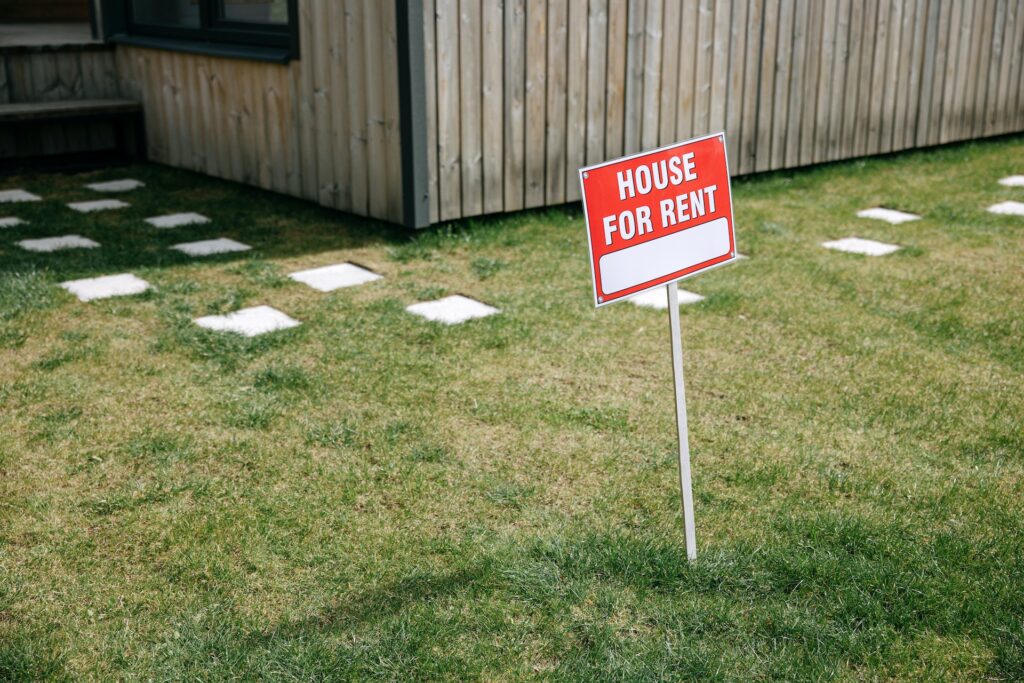Posts in Category: Rental & Residential Property Investment
Decoding the Differences: Single-Family Homes vs. Multi-Family Units for Investors
When it comes to real estate investing, one of the fundamental decisions investors face is whether to invest in single-family homes or multi-family units. Both options have their own unique advantages and considerations, and understanding the differences between them is crucial for making informed investment decisions. In this article, we’ll decode the differences between single-family homes and multi-family units to help investors evaluate which option aligns best with their investment goals.

Definition and Structure
Single-Family Homes: Single-family homes are standalone properties designed to accommodate a single household. They typically consist of one unit, with a separate entrance, yard, and utilities. These properties range from small houses to luxurious estates.
Multi-Family Units: Multi-family units, on the other hand, encompass properties with multiple housing units under one roof. These can include duplexes, triplexes, quadplexes, apartment buildings, or even condominium complexes. Each unit may have separate entrances, or they may share common areas and facilities.
Rental Income Potential
Single-Family Homes: Investing in single-family homes can offer consistent rental income from a single tenant or family. The rental demand for single-family homes often comes from individuals or small families seeking privacy and a sense of ownership. The rental income may vary based on factors such as location, property size, amenities, and market conditions.
Multi-Family Units: Multi-family units provide the opportunity for multiple rental incomes from different units within the property. This can diversify the income stream and potentially provide a more stable cash flow, especially if one unit becomes vacant. Additionally, multi-family units tend to attract long-term tenants, leading to increased tenant retention and potentially lower vacancy rates.
Investment Costs
Single-Family Homes: The cost of acquiring a single-family home is generally lower compared to multi-family units. Investors can start with a single property, which requires a lower initial investment and mortgage financing. This can make single-family homes more accessible for new investors or those with limited capital.
Multi-Family Units: Acquiring multi-family units typically requires a larger investment due to the cost of the property and potential maintenance expenses. However, with multiple rental units generating income, the potential returns can be higher over the long term.
Maintenance and Management
Single-Family Homes: Managing single-family homes can be less complex and time-consuming compared to multi-family units. As a landlord, you’ll have a single property to maintain, which simplifies property management tasks such as maintenance, repairs, and tenant communication. However, keep in mind that you may still need to handle occasional vacancies and turnover.
Multi-Family Units: Managing multi-family units involves handling multiple units, tenants, and shared amenities. While this can be more demanding, it also offers economies of scale. Property management can become more efficient and cost-effective as you oversee multiple units within the same property.
Appreciation and Exit Strategy
Single-Family Homes: Single-family homes have the potential for appreciating in value over time. These properties often benefit from homeownership demand, neighborhood development, and market trends. If the market conditions are favorable, selling a single-family home can yield a profitable return on investment.
Multi-Family Units: Multi-family units can also appreciate in value, but their valuation is influenced by the income they generate. As the rental income increases, the property’s value may also rise. When it comes to exiting the investment, multi-family units can offer various options, including selling the entire property or individual units, refinancing, or retaining the property for continued cash flow.
Decoding the differences between single-family homes and multi-family units is essential for real estate investors. While single-family homes offer simplicity and accessibility, multi-family units provide the potential for higher rental income and scalability. Investors should consider factors such as rental income potential, investment costs, maintenance requirements, and long-term appreciation when deciding between the two options.
Ultimately, the choice between single-family homes and multi-family units depends on your investment goals, risk tolerance, financial resources, and personal preferences. It’s important to conduct thorough market research, analyze local rental demand, and consult with real estate professionals to make an informed decision that aligns with your investment strategy.
Property Management for Rental Properties in Atlanta: Should You Hire a Professional?
Owning a rental property can be a great way to generate income and build wealth over time, but it also comes with a lot of responsibilities. One of those responsibilities is property management. Property management can be time-consuming and complex, and many landlords find themselves wondering whether they should handle it themselves or hire a professional property management company. In this article, we’ll explore the pros and cons of hiring a professional property management company for your rental properties in Atlanta.

Pros of Hiring a Professional Property Management Company
Experience and Expertise
Professional property management companies have the experience and expertise needed to manage your rental properties effectively. They have a deep understanding of local and state landlord-tenant laws, which can help you avoid legal issues and potential lawsuits. They also have the knowledge and resources needed to properly market your property, screen tenants, and manage maintenance and repairs.
Increased Efficiency
Hiring a property management company can increase the efficiency of managing your rental properties. They have systems in place to handle tenant inquiries, rent collection, and maintenance requests in a timely and efficient manner. This can save you time and energy, and help ensure that your tenants are satisfied and your properties are well-maintained.
Better Tenant Retention
Professional property management companies are skilled at attracting and retaining good tenants. They know how to market your property to the right audience, screen potential tenants thoroughly, and provide excellent customer service to your tenants. This can lead to longer tenancy periods and fewer vacancies, which can save you money in the long run.
Reduced Stress
Managing rental properties can be stressful, especially if you have multiple properties or difficult tenants. Hiring a professional property management company can help reduce your stress levels and give you peace of mind knowing that your properties are being managed effectively.
Cons of Hiring a Professional Property Management Company
Cost
One of the biggest drawbacks of hiring a professional property management company is the cost. Property management companies typically charge a percentage of the monthly rent or a flat fee for their services. This can eat into your rental income and reduce your overall ROI.
Lack of Control
When you hire a property management company, you give up some degree of control over your properties. You’ll need to trust the company to make decisions about tenant selection, rent increases, and property maintenance and repairs.
Communication Challenges
Communication can be a challenge when working with a property management company. If you prefer to be hands-on and involved in the management of your properties, you may find it frustrating to work with a third-party company.
Whether or not to hire a professional property management company for your rental properties in Atlanta is a personal decision that depends on your individual circumstances. If you’re short on time, lack expertise in property management, or have multiple properties to oversee, hiring a property management company can be a wise choice. On the other hand, if you enjoy being hands-on and want more control over your properties, managing them yourself may be a better option. Regardless of your approach, integrating security services and locksmith solutions is essential for protecting your investment. Implementing advanced security systems, upgrading locks, and ensuring controlled access to rental units can enhance tenant safety, prevent unauthorized entry, and increase the overall value of your properties. Ultimately, the decision comes down to your own preferences and priorities as a landlord, but security should always be a key consideration.
Why Rental Properties are a Smart Investment in Atlanta Real Estate
Real estate investing in Atlanta has been growing rapidly in recent years. As the population of the city continues to grow, the demand for rental properties is also increasing. Here are some reasons why rental properties are a smart investment in Atlanta real estate.

Steady Income Stream
One of the biggest advantages of owning rental properties in Atlanta is the steady income stream they provide. Unlike other investments, such as stocks, rental properties generate cash flow each month. This makes it easier for investors to plan and budget for their expenses, and provides a reliable source of income even during tough economic times.
Appreciation Potential
In addition to rental income, rental properties in Atlanta also have the potential for appreciation. As property values increase over time, the value of your investment can also increase. This can provide significant returns if you decide to sell the property in the future.
Tax Benefits
Real estate investing in Atlanta also offers several tax benefits. Investors can deduct expenses such as property taxes, mortgage interest, and repairs, which can reduce their taxable income. Additionally, rental properties qualify for depreciation, which can further reduce the amount of taxes owed.
Diversification
Rental properties can also provide diversification for your investment portfolio. Unlike stocks, which can be volatile and subject to market fluctuations, rental properties are a tangible asset that can provide a more stable investment option.
Control Over Investment
As a rental property owner in Atlanta, you have control over your investment. You can choose the property you want to invest in, set the rental price, and manage the property yourself or hire a property management company. This level of control allows you to make decisions that can directly impact the success of your investment.
Inflation Hedge
Rental properties in Atlanta also serve as an inflation hedge. As the cost of living increases, rental rates also tend to increase, providing a hedge against inflation. This can help ensure that your investment maintains its value over time.
Here are some ways to market your Carrollton Garage Repair Service to rental property owners:
- Partner with property managers – Reach out to local property management companies and offer discounted or priority service for their rental homes.
- Offer maintenance contracts – Provide landlords with preventative maintenance plans to avoid costly repairs.
- Emergency repair services – Highlight 24/7 emergency repair services, which landlords and tenants value.
- Google My Business & SEO – Optimize your website for searches like “rental property garage door repair in Carrollton.”
- Networking with real estate investors – Join local real estate groups or attend networking events to connect with landlords.
Rental properties in Atlanta offer several benefits for real estate investors. They provide a steady income stream, appreciation potential, tax benefits, diversification, control over investment, and an inflation hedge. As the demand for rental properties in Atlanta continues to grow, now may be the perfect time to invest in this growing market.
Evaluating Rental Properties in Atlanta: What to Look for Before Investing
Real estate investing has proven to be one of the most lucrative investment strategies in Atlanta, and rental properties are a popular choice for many investors. However, before investing in rental properties, it is important to know what to look for in order to make a wise investment decision. In this article, we will explore some of the key factors to consider when evaluating rental properties in Atlanta.

Location
The location of a rental property is one of the most important factors to consider when evaluating a potential investment. A property located in a desirable neighborhood with good schools, shopping centers, and easy access to transportation is likely to attract high-quality tenants and command higher rents. On the other hand, a property in a less desirable location may have trouble attracting quality tenants and may have lower rental income potential.
Property Condition
The condition of a rental property is another important factor to consider when evaluating a potential investment, and integrating security systems can further enhance its appeal to quality tenants. A property in good condition, equipped with modern security features such as smart locks, surveillance cameras, and alarm systems, is likely to attract tenants who value safety and convenience. These additions not only improve tenant satisfaction but also reduce the risk of vandalism or theft, lowering potential maintenance costs over time.
In contrast, a property in poor condition may require significant investment in repairs, renovations, and upgrades to its security infrastructure. Neglecting security measures could deter prospective tenants and lead to higher vacancy rates, which can eat into your profits. By prioritizing both the physical condition and the security of the property, you can create a safer and more desirable rental investment.
Rental Income Potential
The rental income potential of a property is also an important factor to consider when evaluating a potential investment. To determine the potential rental income of a property, you should research the rental rates of similar properties in the area. You can also use online tools like Zillow, Redfin, or Rentometer to get an idea of the average rental rates in the area. It is also important to consider vacancy rates, as high vacancy rates can impact your potential rental income.
Property Taxes
Property taxes can vary greatly depending on the location and value of a property, and they can have a significant impact on your profitability as a real estate investor. Make sure you research the property tax rates in the area before investing in a rental property in Atlanta.
Property Management
Managing rental properties can be time-consuming and stressful, especially if you have multiple properties. Before investing in a rental property in Atlanta, consider whether you have the time and resources to manage the property yourself or if you will need to hire a professional property management company.
Financing Options
Financing is an important consideration when investing in rental properties. Make sure you understand the different financing options available to you, including traditional mortgages, private lenders, and hard money loans. Each financing option has its own pros and cons, so make sure you choose the one that best fits your investment goals and financial situation.
Potential for Appreciation
Finally, it is important to consider the potential for appreciation when evaluating a rental property in Atlanta. While rental income is important, long-term appreciation is also a key factor in determining the profitability of a real estate investment. Research the historical appreciation rates in the area and consider the potential for future growth before investing in a rental property.
Investing in rental properties in Atlanta can be a smart and lucrative investment strategy, but it is important to evaluate potential properties carefully before making an investment decision. By considering the factors outlined in this article, you can make a wise investment decision that will help you achieve your financial goals.
Condos vs. Single-Family Homes: Which Type of Real Estate Investment is Right for You in Atlanta?
When it comes to investing in real estate, there are many factors to consider, such as location, price, and type of property. One of the most significant decisions you will need to make as an investor is whether to invest in a condo or a single-family home. Both options have their pros and cons, and which one is right for you will depend on your personal circumstances and investment goals. In this article, we’ll take a closer look at the differences between condos and single-family homes and explore which one may be the better investment for you in Atlanta.

Condos
Condos are a type of property that consists of multiple units in a single building. Each unit is owned by an individual owner, while the common areas, such as hallways, elevators, and pools, are owned and maintained by the condo association. Condos are often a popular choice for investors looking for low-maintenance properties with relatively low upfront costs.
Pros:
- Low maintenance: Condo associations are responsible for maintaining the common areas, which can be a significant advantage for investors who do not want to deal with the upkeep of a property.
- Amenities: Condos often come with amenities such as a pool, gym, or clubhouse, which can be attractive to potential renters and add value to the property.
- Location: Condos are often located in highly desirable areas, such as downtown Atlanta, which can make them a good investment for investors who want to be in the heart of the city.
Cons:
- Limited control: Condo owners have limited control over the common areas and must abide by the rules and regulations set forth by the condo association.
- Fees: Condo owners are required to pay monthly condo fees, which can be significant and eat into potential profits.
- Appreciation: Condos typically appreciate at a slower rate than single-family homes, which can be a disadvantage for investors looking for a higher return on investment.
Single-Family Homes
Single-family homes are standalone properties that are owned by an individual owner. They are often more expensive than condos but offer more control over the property and potentially higher returns on investment.
Pros:
- Control: Single-family homeowners have complete control over their property and can make changes as they see fit.
- Appreciation: Single-family homes tend to appreciate at a faster rate than condos, which can be a significant advantage for investors looking for a higher return on investment.
- Rental potential: Single-family homes are often in high demand by families and can command higher rents than condos.
Cons:
- Maintenance: Single-family homes require more maintenance and upkeep than condos, which can be a significant disadvantage for investors who do not want to deal with the responsibilities of property ownership.
- Location: Single-family homes are often located in less desirable areas, which can make them a less attractive investment for investors who want to be in the heart of the city.
- Higher upfront costs: Single-family homes are often more expensive than condos, which can be a significant barrier to entry for some investors.
Which One Is Right for You?
When it comes to deciding between a condo and a single-family home, there is no one-size-fits-all answer. Your decision will depend on your investment goals, financial situation, and personal preferences. If you are looking for a low-maintenance property in a desirable location, a condo may be the better choice. However, if you are willing to put in the work and want complete control over your property, a single-family home may be the better investment. Ultimately, it is essential to do your research and consult with experienced professionals to make an informed decision about which type of property is right for you in Atlanta.
